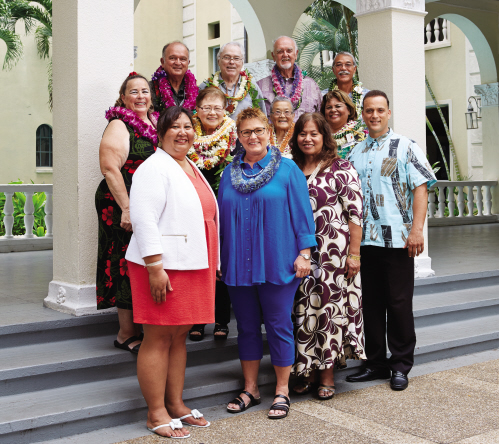
An Introduction by Terri Byers, Director of Executive Office on Aging
Mahalo to Generations Magazine for the opportunity to introduce myself to you. When I was appointed director of the state Executive Office on Aging (EOA) by Gov. David Ige earlier this year, I joined a fantastic team of professionals and volunteers dedicated to honoring our kupuna. The office is funded primarily by grants under the Older Americans Act, state appropriations and other federal grants. EOA has a staff of 25, assisted by volunteers from the Long Term Care Ombudsman program, the Senior Medicare Patrol and the Hawai‘i State Health Insurance Program.
We work with all four county Area Agencies on Aging (AAAs) via local Aging and Disability Resource Centers (ADRC) to enable older adults to live in their own homes for as long as possible. Connecting them to direly needed support and services can be a complex process.
Alternatives to institutional care are called home and community based services. In Hawai‘i, these supports are made available through DHS, Quest Integration (QI), EOA’s Kupuna Care and Older Americans Act services provided through your county’s AAA. EOA provides training and technical assistance to the AAAs so they can meet federal guidelines for a fully functioning ADRC.
A Driving Need for Change
Section 2402(a) of the Affordable Care Act requires the U.S. Department of Health (DOH) and the Hawai‘i Human Services (HHS) create regulations that:
- Respond to beneficiary needs and choices;
- Provide strategies to maximize independence, including client-employed providers; and
- Provide support and coordination necessary for “individualized, self-directed, community-supported life.”
We use ADRC as a mechanism to comply with these federal requirements, and we are actively seeking new private and nonprofit partnerships to help us serve the needs of older adults and family caregivers. Read on and find out what’s going on in your county. You will see why I am excited about the future of aging in Hawai‘i. To become involved with EOA planning activities, please call our office at 808-586-0100.
COUNTY OF HAWAI’I
by C. Kimo Alameda, HI County Executive Director, Office on Aging
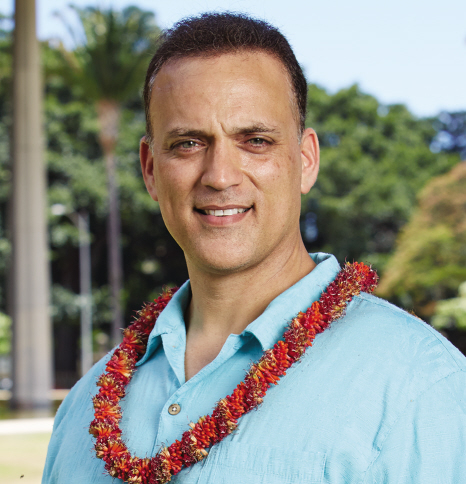 Kupuna Care (KC) program provides funds to “… help frail and vulnerable older persons lead independent, meaningful and dignified lives in their own homes and communities.” Services for Seniors and the Hawai‘i County Office of Aging (HCOA) has increased the number of seniors receiving Kupuna Care funding in Hawai‘i County by creating a unique case management and transition approach, that doubles the impact of the state’s fiscal investment while ensuring seniors are safe, happy and living in their homes with their families for as long as they choose.
Kupuna Care (KC) program provides funds to “… help frail and vulnerable older persons lead independent, meaningful and dignified lives in their own homes and communities.” Services for Seniors and the Hawai‘i County Office of Aging (HCOA) has increased the number of seniors receiving Kupuna Care funding in Hawai‘i County by creating a unique case management and transition approach, that doubles the impact of the state’s fiscal investment while ensuring seniors are safe, happy and living in their homes with their families for as long as they choose.

Of 273 KC-funded seniors receiving case management from Services for Seniors in 2014, 77 percent were able to stay in their homes at an average cost of $1,200 per month. This is an astonishingly low figure when average monthly costs at Hilo’s Life Care Center run $12,405, Okutsu VA at $11,200 and Foster Home Care or a Care Home between $3,000 and $5,000. Services for Seniors reduced out-of-pocket costs through its “least restrictive placement” approach to transition planning that involves the development of lasting informal partnerships for seniors at every level.
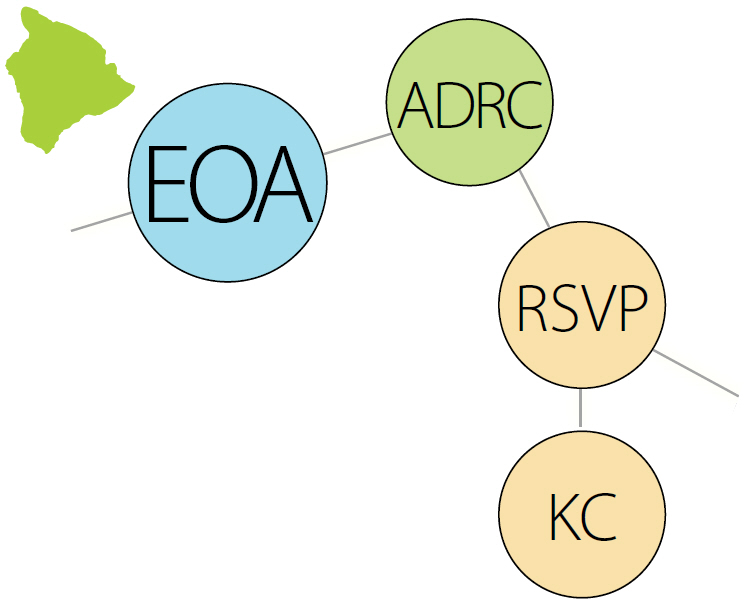 After a Kupuna Care consumer receives three to six months of case management and wrap services, Services for Seniors staff works diligently to replace formal services with community and volunteer supports. These supports are provided by caregivers in the family, friends, faith-based members and/or community volunteers willing to be a part of the consumer’s caregiving team. Transition to informal supports reduces the use of Kupuna Care funds, which then enables other eligible seniors to participate in the program. This system also reduces the number of consumers on a wait list, allowing Services for Seniors to help a larger number deserving elders age in place with dignity.
After a Kupuna Care consumer receives three to six months of case management and wrap services, Services for Seniors staff works diligently to replace formal services with community and volunteer supports. These supports are provided by caregivers in the family, friends, faith-based members and/or community volunteers willing to be a part of the consumer’s caregiving team. Transition to informal supports reduces the use of Kupuna Care funds, which then enables other eligible seniors to participate in the program. This system also reduces the number of consumers on a wait list, allowing Services for Seniors to help a larger number deserving elders age in place with dignity.
For every Kupuna Care dollar HCOA and Services for Seniors spends, the State of Hawai‘i and its taxpayers save either $2 to $3 in foster care home costs, or $10 to $12 in long-term residential costs. By listening to our kupuna and connecting them to their circle of support, Services for Seniors creates successful relationships that benefit the whole community.
Active Seniors Give Back Through RSVP
Hawai‘i County’s Elderly Activities Division is one of the most active senior entities in the state, serving over 12,000 older adults. One of its prized programs is the Retired & Senior Volunteer Program (RSVP) that places close to 1,700 Hawai‘i Island seniors in over 150 volunteer stations. This year, RSVP celebrates 42 years and will accumulate 130,000 hours of service — a value of $1.3 million given back to the community. RSVP also gives our active seniors meaningful volunteer work that enables them to engage with their community as well as live independently in their own homes.
You never know whom you might run into as you walk the halls of Hawai‘i County’s Aging and Disabilities Resource Center. How would you like to chat with a guy who was inducted into the Volleyball Hall of Fame?
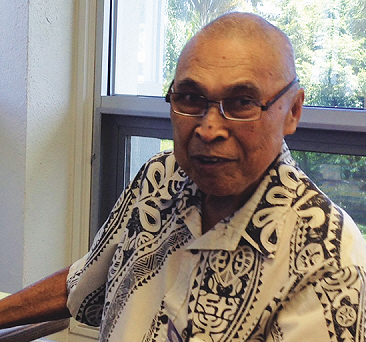
Hall of famer and Olympic volleyball legend Pedro “Pete” Velasco is an RSVP volunteer who spends several hours a week answering the phone and welcoming walk-in clients at Hawai‘i County’s Nutrition (HCN) program — one of many duty stations available to RSVP volunteers aged 55 and older. Pete’s wife, Adelle, oversees the Keaau HCN program. “She introduced me to RSVP,” says Pete. “I answer phones, and I help make connections between people.”
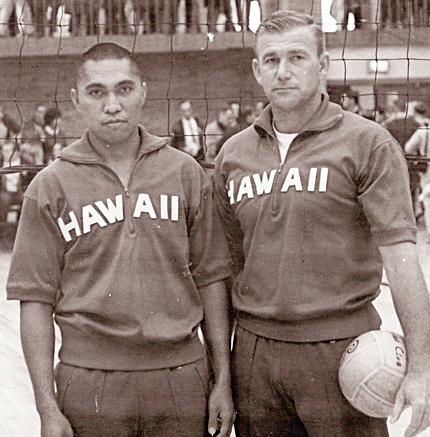
Connections between people and leadership is what led Pete to the pinnacle of volleyball — first as part of the Outrigger Team that won tournaments across the nation in the ‘50s. He played on the United States National teams at the 1963 and 1967 Pan American Games. In 1964, he was elected captain of the USA Olympic volleyball team for the Tokyo games, where volleyball was first recognized as an Olympic sport. He returned to the Olympics in Mexico City in 1968.
Pete has a great recipe for life: “I live by seven words — commitment, dedication, and sacrifice. If you do these three things, God is bound to give you success. But to maintain success you need the next two words — creativity and innovation. And to perpetuate the success you need the final two words — humility and compatibility.” Pete is truly a humble man. “At my point in life, I give from the heart. You don’t owe me anything, because I already received when I gave to you.”
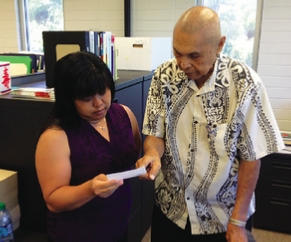
Giving is what RSVP is all about. Pete says, “I love what I do. The RSVP program helps me to share my aloha with those I can help.”
Join RSVP and share your aloha with those you can help. RSVP volunteers come from all walks of life: homemakers, landscapers, postal workers, salespersons and coffee growers all bring their successes and wisdom to their volunteer work. If you are over 55 and can commit to several hours a week, please call 808-961-8730 or visit our office at Kamana Senior Center, 127 Kamana St. in Hilo. And contact our ADRC office for information on our various programs and services.
- Aging & Disability Resource Center
- 1055 Kinoole St., #101, Hilo
- 808-961-8626 | www.hcoahawaii.org
COUNTY OF MAUI
by Deborah Stone-Walls, Maui County Executive on Aging
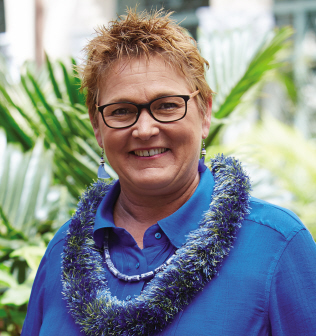 Maui County Office on Aging (MCOA) is an office filled with activity. Since implementing standardized tools and procedures of the Aging and Disability Resource Center (ADRC), new referrals to MCOA have increased as much as 400 percent a month. While the numbers of seniors and individuals with disabilities requesting assistance has increased, the available funding to serve the seniors of Maui, Moloka‘i, and Lana‘i has remained mostly static. Therefore, MCOA finds it necessary to look for opportunities to creatively solve the issue of how to meet the increasing need without the luxury of an increase in funding.
Maui County Office on Aging (MCOA) is an office filled with activity. Since implementing standardized tools and procedures of the Aging and Disability Resource Center (ADRC), new referrals to MCOA have increased as much as 400 percent a month. While the numbers of seniors and individuals with disabilities requesting assistance has increased, the available funding to serve the seniors of Maui, Moloka‘i, and Lana‘i has remained mostly static. Therefore, MCOA finds it necessary to look for opportunities to creatively solve the issue of how to meet the increasing need without the luxury of an increase in funding.
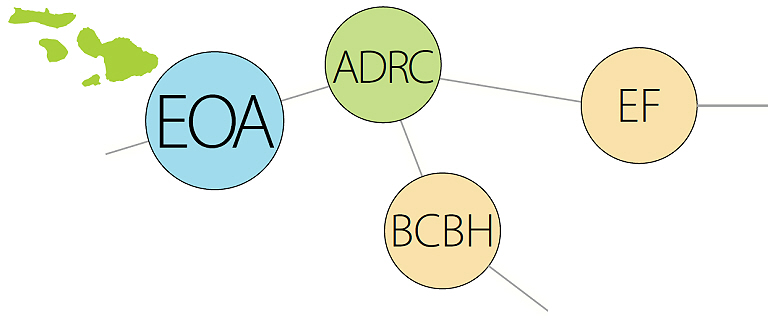 A major way that MCOA is working to find solutions is to greatly increase emphasis on helping seniors, family caregivers and individuals with disabilities improve their overall health. Two “evidence-based” (proven to create expected outcomes) healthy-aging programs now available on Maui are Better Choices, Better Health (BCBH) and Enhance®Fitness (EF).
A major way that MCOA is working to find solutions is to greatly increase emphasis on helping seniors, family caregivers and individuals with disabilities improve their overall health. Two “evidence-based” (proven to create expected outcomes) healthy-aging programs now available on Maui are Better Choices, Better Health (BCBH) and Enhance®Fitness (EF).
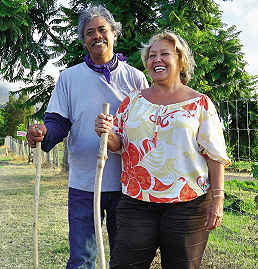
BCBH includes a Chronic Disease Self-Management Program (for those with a long-term health conditions, such as diabetes, arthritis, heart disease, obesity, high blood pressure and many others). The six-week workshop covers how to deal with pain, fatigue and frustration, and teaches action planning, in addition to ways to improve fitness and manage medications.
Another BCBH workshop is the Diabetes Self- Management Program (for those who are prediabetic or suffer from diabetes). Both workshops provide the necessary self-management tools that reduce symptoms and promote better health and overall enjoyment of life. The once-a-week class for people with diabetes meets for six weeks, building awareness for healthy choices, and creating good habits that allow participants to bring themselves into better control and increased overall health. Family members may attend to reinforce and support healthy choices. Jose and Lana Quedding from Keokea in Upcounty Maui are enjoying their retirement with the improved quality of life that came from attending our program.
These dynamic, interactive and fun workshops are offerred to seniors on Maui, Moloka‘i and Lana‘i. Evidence shows that program participants experience positive outcomes, such as improved health behaviors, positive changes in health, increased confidence, better communication with health providers, fewer visits to physicians, expanded support networks, more energy and less fatigue. Participants experience a better quality of life when they are no longer totally controlled by their chronic disease.
MCOA is also excited to continue work with community partners by offering Enhance®Fitness, a nationwide, evidence-based physical activity program for seniors. The program has been nationally recognized by the Centers for Disease Control and Prevention, U.S. Department of Health and Human Services, U.S. Administration on Aging and the National Council on Aging. More importantly, folks on Maui who have participated in Enhance®Fitness report that they are noticeably stronger and more physically fit! Many have been astounded that physically, they now can do more than they have in years. Even small increases in strength, flexibility and balance can make household chores and errands much easier.
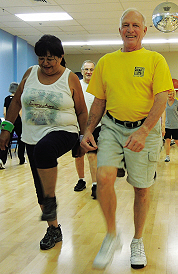
Enhance®Fitness is a fun, one-hour, interactive class offered three times a week at various locations on Maui and Lana‘i. MCOA is in the initial stages of planning for Enhance®Fitness implementation on Moloka‘i.
The program challenges active, older adults, as well as individuals who are unfit or near-frail, with exercises and activities geared to every level of fitness. Participants “work out” standing, seated or in their wheelchairs — each as they are able. Every class is like four classes in one: aerobics, balance, strength training and stretching. No special or expensive equipment is needed, and soft wrist and ankle weights are provided.
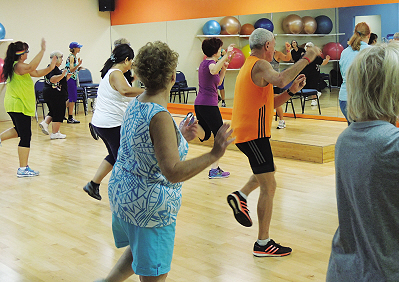 Enhance®Fitness instructors are specially trained. Individual participant progress is followed with fitness checks at enrollment and every four months thereafter. Exercises are safe and may be modified according to participant ability. The class also affords social interaction and reinforcement among persons who have a common desire to get healthier. Enhance®Fitness classes are a great way to get stronger, have more energy and maintain independence.
Enhance®Fitness instructors are specially trained. Individual participant progress is followed with fitness checks at enrollment and every four months thereafter. Exercises are safe and may be modified according to participant ability. The class also affords social interaction and reinforcement among persons who have a common desire to get healthier. Enhance®Fitness classes are a great way to get stronger, have more energy and maintain independence.
For further information on all Maui County Office of Aging programs and services, please call Monday through Friday 7:45 am to 4:30 pm:
- Maui: 808-270-7774
- Moloka‘i: 808-553-5241
- La na‘i: 808-565-6818
- Or visit us online: www.mauicountyadrc.org
COUNTY OF O’AHU
by Nalani Aki, County Executive on Aging, City & County of Honolulu, Elderly Affairs Division
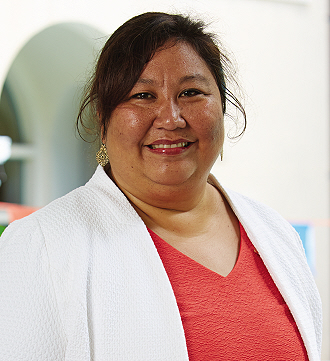 For O‘ahu elders over 60 and people with disabilities of any age, obtaining information and referral assistance starts with the Elderly Affairs Division, ADRC “one-stop” Senior Helpline: 808-768-7700. Trained community service aids assess needs and refer callers to service providers in Honolulu County, and conduct assessments for frail elders 60 and older who may qualify for publicly funded services. For example, a homebound elder in need of meals would be assessed and connected to local agencies that provide meal service.
For O‘ahu elders over 60 and people with disabilities of any age, obtaining information and referral assistance starts with the Elderly Affairs Division, ADRC “one-stop” Senior Helpline: 808-768-7700. Trained community service aids assess needs and refer callers to service providers in Honolulu County, and conduct assessments for frail elders 60 and older who may qualify for publicly funded services. For example, a homebound elder in need of meals would be assessed and connected to local agencies that provide meal service.
My job is to oversee Honolulu’s Aging and Disabled Resource Center (ADRC), a component of the Elderly Affairs Division. Each month, our helpline connects answers hundreds of calls regarding long term service and supports on O‘ahu.
We understand that transportation is a challenge for many people, so ADRC is a helpline to we connect older adults and people with disabilities to the agencies that can help them. Aids answer questions Monday through Friday from 7:45 am to 4:30 pm except holidays. Many call to ask what programs are available and how to qualify; those interested in specific services may be in directly referred to a service provider. In addition to connecting O‘ahu elderly and people with disabilities to specific government and community agencies, a community service aid will also arrange to visit potential clients to verify assessment information and help them create a support plan. Many seniors wish to continue to live in their own homes, but need assistance with meals, transportation or other services. A support plan may include state or federally funded services, identifies members of support, such as family members, friends and neighbors, volunteers or paid professionals. It is a plan that covers all options for assistance — formal and informal.
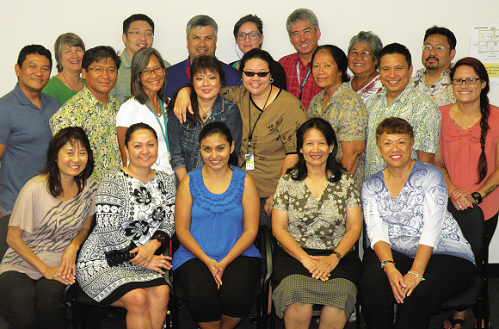
Some seniors say the hardest step is admitting that they need help and picking up the phone to ask for help. Our aids will guide you to community services that make sense and connect you to publically funded services you qualify for. ADRC also supports a website packed with information. Family members and caregivers use it most. During the next year, we plan to enhance the site for easier navigation. We are still evolving. It has taken a lot of time and effort to roll out our “onestop” helpline and ADRC services to such a large audience of seniors and people with disabilities. Agencies and community programs are changing and improving their services, too. We ask for your understanding as we continue to meet the challenge of guiding everyone to the best options to meet their specific needs.
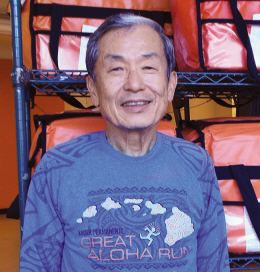 O‘ahu’s Retired and Senior Volunteer Program (RSVP) is the volunteer end of help and assistance. RSVP engages people age 55 and over in a diverse range of volunteer activities offered by more than 25 “volunteer stations” (nonprofit or government agencies who deliver services to the elderly, as well as providing other community needs). Project Director Lenny Fabro heads this very successful island-wide program.
O‘ahu’s Retired and Senior Volunteer Program (RSVP) is the volunteer end of help and assistance. RSVP engages people age 55 and over in a diverse range of volunteer activities offered by more than 25 “volunteer stations” (nonprofit or government agencies who deliver services to the elderly, as well as providing other community needs). Project Director Lenny Fabro heads this very successful island-wide program.
RSVP is federally funded under the Corporation for National and Community Services (CNCS). In 1972, it was initiated on O‘ahu by Helping Hands Hawaii. Since 2010, the City/County of Honolulu, under the Elderly Affairs Division (EAD), sponsors RSVP O‘ahu. Currently, over 200 RSVP O‘ahu volunteers contribute over 14,000 hours. “Two hundred more volunteers are needed,” says Fabro.
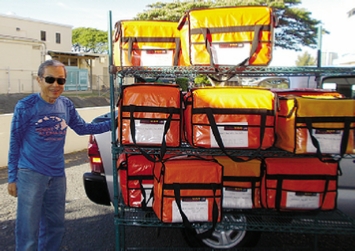
“We make it easy for citizens to volunteer,” Fabro continues. “Persons over 55 who can commit time each week may enroll by calling 808-768-7700, or by filling out the online form at www.elderlyaffairs.com/site/460/rsvp.aspx or on Facebook at www.facebook.com/RSVPOahu. We also reach out with presentations at fairs, community gatherings and organization meetings. We invite volunteers to an orientation that explains all the many types of volunteer opportunities available. The beauty of RSVP is flexibility. Volunteers pick what they want to do based on their skills and tastes. If they want to help on Mondays delivering a meal to a senior, and on another day help with blood donors, they can do it. If an activity does not suit them, they may switch to another more compatible assignment.”
 Some of the volunteer stations now available are: Hawai’i Literacy, The Next Step Shelter, Office for Social Ministry, Blood Bank of Hawai‘i, Lanakila Meals on Wheels, State Executive Office on Aging, HCAP Head Start and several elementary schools providing tutoring and mentoring. One important volunteer opportunity is with the EAD. Volunteers assist with important independent living services, such as transportation, companionship and telephone reassurance, to homebound elders. Another station that assists with independent living services is the Waikiki Friendly Neighbors program.
Some of the volunteer stations now available are: Hawai’i Literacy, The Next Step Shelter, Office for Social Ministry, Blood Bank of Hawai‘i, Lanakila Meals on Wheels, State Executive Office on Aging, HCAP Head Start and several elementary schools providing tutoring and mentoring. One important volunteer opportunity is with the EAD. Volunteers assist with important independent living services, such as transportation, companionship and telephone reassurance, to homebound elders. Another station that assists with independent living services is the Waikiki Friendly Neighbors program.
Fabro encourages people 55 and over, to apply their knowledge, skills, and experiences to volunteer and help meet community needs. If you have some time to commit, sign up and check out the many ways you can help our O‘ahu community.
- Elderly Affairs Divison RSVP
- 715 South King St., Ste. 211, Honolulu
- 808-768-7700 | www.elderlyaffairs.com
COUNTY OF KAUA’I
by Kealoha Takahashi, Executive on Aging, County of Kaua‘i Agency on Elderly Affairs, Office of Community Assistance
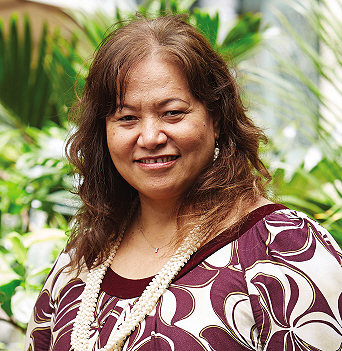 Elders on Kaua‘i are just a phone call away from our Agency on Elderly Affairs. Our receptionist will answer requests for information, and process requests for assistance by taking the caller’s name and address and making an appointment for visit and needs assessment from a Community Service Assistant. Our goal is to be sure elders know what federal, state, county and community services are available to them, and to refer them to agencies and care providers who can deliver those services. Funding is limited and helping those who live alone is top priority.
Elders on Kaua‘i are just a phone call away from our Agency on Elderly Affairs. Our receptionist will answer requests for information, and process requests for assistance by taking the caller’s name and address and making an appointment for visit and needs assessment from a Community Service Assistant. Our goal is to be sure elders know what federal, state, county and community services are available to them, and to refer them to agencies and care providers who can deliver those services. Funding is limited and helping those who live alone is top priority.
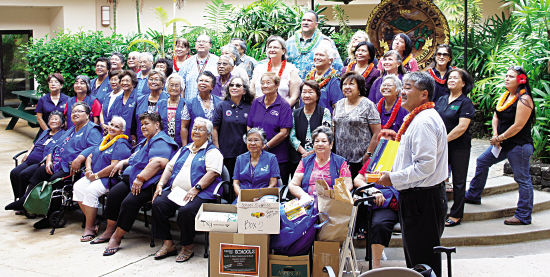
While most people call us, we also assist elders who email us, visit our office or submit questions on our website. Last year, we processed over 4,000 requests for information and referrals.
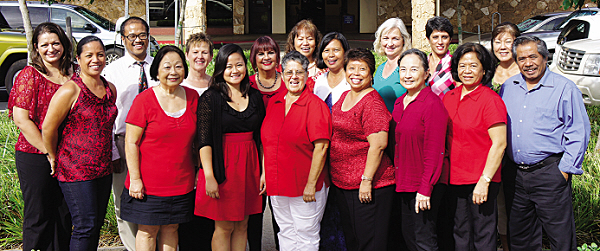
Kaua‘i County is part of a nationwide Area Agency on Aging program, which was created by the Older Americans Act. It mandates that we provide elders access to health, transportation, information and referral services in our community. To be sure that all elders have access to us, we reach out to the community with presentations and workshops, too. We follow our elder clients as they age, and send caseworkers to do annual assessments.
It is important for seniors on Kaua‘I to know that services are available to them and to their families. Never believe that you have nowhere to turn.
 That goes for caregivers, too. Plan ahead for the time when your loved one will need more help than you can give. Find out what services are available to you now and in the future. Don’t wait until you are exhausted and stressed out before you call for assistance with your loved one. We have information about daycare for elders and respite services for worn out caregivers that can help them manage better and maintain their own mental and physical health. Call us — we can help.
That goes for caregivers, too. Plan ahead for the time when your loved one will need more help than you can give. Find out what services are available to you now and in the future. Don’t wait until you are exhausted and stressed out before you call for assistance with your loved one. We have information about daycare for elders and respite services for worn out caregivers that can help them manage better and maintain their own mental and physical health. Call us — we can help.
Kaua‘i RSVP Volunteer Opportunities
The Corporation for National Community Services (CNCS) grants funds to Kaua‘i County that help pay for Community Service staff salaries. Actually coordinating and delivering services takes the work of a full community. On Kaua‘i, over 350 volunteers donate their time to assist 24 different organizations that deliver services to the elderly. All skills can be used to help others. If you want to learn new skill, we will teach you. All you need is to be active, age 55 or older, and able to commit to several hours a week to help the elderly. To volunteer, call 808-241-4479.
Foster Grandparents Program
Another statewide program that CNCS funds is Foster Grandparents. This program teams elders with school children who don’t have grandparents. Educational research shows that kids who spend time with grandparents perform better in school. Undivided attention, unconditional friendship and mentoring from elders can create a positive framework for the child at school and play.
Healthy Aging Program on Kaua‘i
It’s never too late to get healthy! We encourage seniors to participate in our newest programs for healthy aging. Doctors have proven that exercise and careful management of chronic disease can keep body, heart and mind healthy as we age, and improve quality of life.
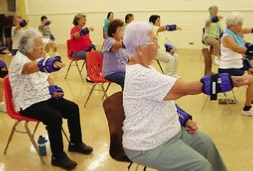
Enhance®Fitness
We currently run nine Enhance®Fitness classes at seven different sites on Kaua‘i. Instructors monitor students’ progress and record increased flexibility, balance, overall strength and endurance. Fitness also improves attitude. Just the social interaction of attending class is a happy benefit for elders who spend most of their time at home.
Diabetes Self-Management Workshop
This important program meets once a week for six weeks. It helps diabetic seniors make better choices. We currently have a two-hour-a-week Diabetes Self-Management workshop that helps diabetics keep their “numbers” under control, become more active and generally feel better.
For more information on Healthy Aging workshops on Kaua‘i, please call or visit us oline.
- County of Kaua‘i Agency on Elderly Affairs
- 4444 Rice St., Ste. 330, Lihue
- 808-241-4470 | www.kauaiadrc.org
AAA – Area Agencies on Aging
ADRC – Aging & Disability Resource Center
AEA – Agency on Elderly Affairs (County of Kaua‘i)
BCBH – Better Choices, Better Health
CNCS – Corporation for National & Comm. Services
DHS – Department of Human Services
DOH – Department of Health
EAD – Elderly Affairs Division (County of O‘ahu)
EF – Enhance®Fitness
EOA – Executive Office on Aging
HCEAD – Hawai‘i County’s Elderly Activities Division
HCN – Hawai‘i County’s Nutrition
HCOA – Hawai‘i County Office of Aging
HHS – Hawai‘i Department of Human Services
KC – Ku¯puna Care
MCOA – Maui County Office of Aging
QI – Quest Integration
RSVP – Retired & Senior Volunteer Program

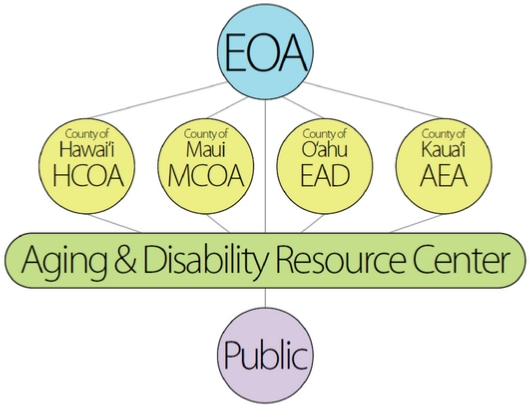

Leave a Reply